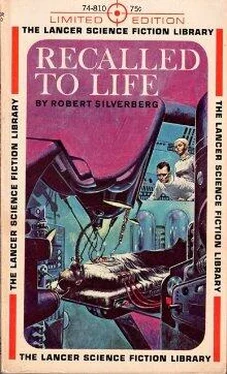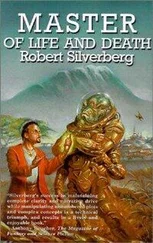“We are sure Father would never have approved of such an awakening” declared Jonathan Bryant, 42, oldest son of the space hero—
MONTREAL (UP)—A mob destroyed the home and office of Dr. Joseph Pronovost this afternoon after he refused to resuscitate a 9-year-old girl who had died the night before. Dr. Pronovost, 58, a general practitioner, claimed to have no knowledge of the Beller reanimation technique announced Monday. Despite his statement, relatives of Nancy St. Leger, a victim of leukemia, broke into the doctor’s home and attacked him.
Dr. Pronovost was reported to be in good condition at Sacred Heart Hospital—
CORPUS CHRISTI, Tex. (AP)—Four men and two women suffered injuries here this evening as a result of a rumor that a Beller reanimation was taking place at a local funeral home.
More than thirty persons entered the Burr Funeral Parlors in an attempt to prevent the reanimation. A funeral service was in progress, and the injuries resulted when guests turned back the intruders. The funeral continued as scheduled after the disturbance.
There were other similar stories elsewhere in the newspapers: violence on both sides of the controversy, angry and ill-informed people trying to prevent or to bring about re-animations. Harker gloomily put the papers aside.
Dark forces were being unleashed. He suspected there was violence yet to come. The fabric of society had been unbound; anything might happen now.
At twenty minutes to twelve, Benedict Lurie stuck his head in Barker’s door and said, “A helicopter full of senators just landed outside. Raymond’s talking to them right now.”
“How many?”
Lurie shrugged. “There were ten in the copter. I couldn’t tell you how many are senators.”
“I’ll be right out,” Harker said.
He filed away the newspapers, cleaned his desk, and selfconsciously straightened his clothing before he went outside. A little group stood in the clearing formed by the area between the three main buildings. Harker saw Mart Raymond, Vogel, Barchet, and Dr. Smathers, and they were talking to—among others—Senator Clyde Thurman.
Harker joined them. Thurman was the first to notice him; he stared at Harker glintingly and rumbled, “Ah—Harker. Hello, there.”
“How are you, Senator?”
“Never better. Harker, you know these men? Senator Brewster of Iowa, Vorys of South Carolina, Dixon of Wyoming, Westmore of California. Gentlemen, you know Mr. Harker—former Governor of New York, of course.”
Harker shook hands all around. He knew most of the senators at least casually; Dixon and Westmore represented the Far West branch of the Nat-Libs, while Brewster and Vorys were arch-Conservatives.
Thurman was the chairman of the committee, and would have the deciding vote in case of a tie. Harker felt apprehensive of that. The venerable senator was ostensibly a Nat-Lib; at least he was elected every six years under that label. But in the past decade he had been trending increasingly toward conservative ways of thinking, and away from the party he had helped to found forty years earlier, in the great political upheaval and reshuffling of the 1990’s.
Each of the senators was accompanied by a staff assistant. That made ten in all.
Thurman said, “The hearings will begin next week, Mr. Harker. We’re here for a preliminary look—see, you understand.”
“Of course.” Harker glanced at Raymond and said, “Mart, have you been introduced?”
Raymond nodded.
Harker went on, “Mr. Raymond is the director of the labs. He’ll conduct you wherever you would like to go, on the premises.”
Raymond looked worried; Harker had seen the faint harried expression growing on the dapper lab director’s face in the past few days. It troubled Harker. Raymond was a good organizer, a level-headed scientist—but he was showing alarming signs of crumbling under the sudden pressure brought about by Mitchison’s treasonous press-release.
Harker edged close to him and murmured, “What’s on the schedule for the senators?”
Through tight lips Raymond replied, “The main event’s a cadaver.”
“You’re going to risk it? ”
Raymond shrugged. Worry-lines tightened his cheeks. “We’ll have to do it sooner or later. Why not now? ”
Marker made no reply. Attempting a human reanimation in front of the senators was a long-shot gamble, even with odds of five to one in favor of success.
If the experiment succeeded, they had gained very little; if it failed, they had lost everything right at the start. The odds of five to one were highly deceptive. But Harker decided to go along with Raymond, just this one time.
He said, “Shall we begin our tour, gentlemen?”
* * *
Raymond had evidently been working frantically all morning to set things up. The labs were spotlessly clean, everything well-ordered and well-dusted. The researchers had received their instructions, too; every one of them looked Constructively Busy, doing something scientific-looking no matter how trivial. In reality, most of them spent a good half their time staring into space, making doodles on scrap paper, or thumbing through textbooks—but senators could never be expected to believe that such idle acts were part of genuine scientific research.
The tour began with a rapid and exhausting general survey of the labs; Raymond served as guide, giving forth bristling scientific terminology at every possible opportunity. The senators looked impressed.
The senators also looked increasingly weary—all except Thurman, who strode along next to Raymond and Harker and put forth a never-ending string of questions, some of them pointless and others embarrassingly perceptive.
As he struggled to keep pace with Thurman, Harker felt a surge of new admiration for the Nat-Lib patriarch. Thurman was a ruggedly built man, well over six feet tall and still erect of bearing; his face was a craggy affair dominated by massive snowy-white eyebrows and a thatch of silver hair, and his voice was a commanding rumble.
It was Thurman who had completed the destruction of the old Democratic and Republican parties by serving as organizer for the National-Liberal Party that carried the 1990 congressional elections; he had then persuaded the incumbent President Morrison to run for re-election on the Nat-Lib, rather than Democratic ticket, in ’92—and, by ’94, the obsolete political parties had vanished, replaced by a more logical alignment of liberal against conservative.
Now, Harker thought, the party lines were blurring again; perhaps it was an inevitable force at work. There were liberals in the American-Conservatives, and some early Nat-Libs, especially Thurman, were with increasing regularity voting for Conservative-sponsored measures. Perhaps in another fifty years’ dme a further reorganization would be needed; it seemed to be necessary about once a century, judging by past performance.
As they explored the enzyme lab and watched the big centrifuge at work in the serotonin room, Harker wondered how he stood with Thurman now. Fifteen years ago, he had virtually been a son to the senator, serving for a while as his private secretary before being tapped for prominence in the New York Nat-Lib organization. Thurman had guided him up through the Mayoralty, saw him into the governor’s mansion in Albany—and then, when the party decided to ostracize him, Thurman had not said a word in his defense. It was more than a year since he had spoken to the veteran legislator.
“These dogs,” Senator Vorys said as Raymond and Vogel demonstrated reanimation on a pair of spaniels—“they feel no pain?” Vorys was a waspish, bald little man, with seemingly a lifetime tenure as American-Conservative Senator from South Carolina.
Читать дальше












